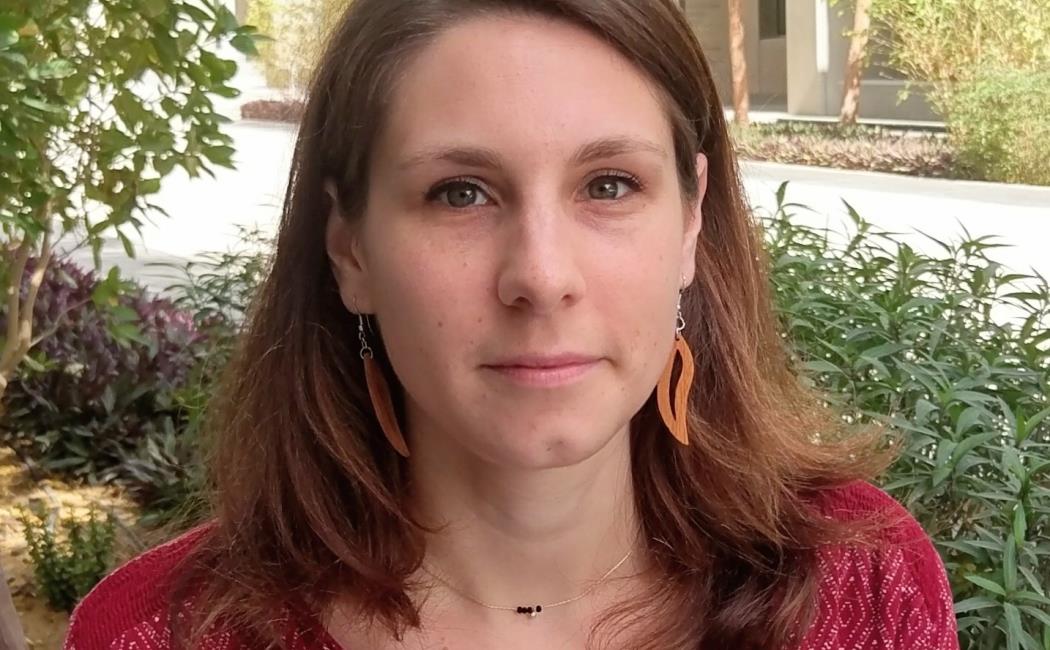Detail

A Domesticated Palm in the Desert: Origins and Evolution of the Date Palm by Dr. Muriel Gros-Balthazard
– Part of the CDA Fall Lecture Series.
Speaker: Muriel Gros-Balthazard
Research Scientist, French National Research Institute for Sustainable Development (IRD)
Visiting Scholar, New York University Abu Dhabi
Theme
Breeding and Genomics for Neodomestication – hosted by Prof. Jesse Poland
Abstract
The date palm is an unrivalled crop of the desert of North Africa and West Asia. It provides the dates, a sweet fruit that has played a prominent role in nomadic societies of those regions and is nowadays rooted in Arabic culture. The Kingdom of Saudi Arabia ranks among the first producing country with more than 1.5 million tons harvested annually, either eaten locally or exported abroad. Many varieties are grown in the country, including the popular Ajwa and Sukkari. Overall, in the MENA region, there are hundreds of varieties of dates having different color, shape, and taste. But the origins and evolution of this diversity remains poorly understood. Where has the date palm been domesticated, and is it even domesticated? When did human started to cultivate and disseminate this iconic species? How did the thousand of cultivars originate, and what is even a cultivar? To answer those fascinating questions, I employ an interdisciplinary approach, where population genomics meets archaeology, and where ethnobotany and field work are pivotal. This lecture will provide the current state of knowledge on the origins and evolution of the date palm. It will also cover the key questions and preliminary results of the “al-Ula date palm project”, a project that aspires to study the diversity found in this oasis of Northwestern KSA and reconstruct the early cultivation of date palm in the region.
About the Speaker
Dr. Muriel Gros-Balthazard is a research scientist at the French National Research Institute for Sustainable Development (IRD) in Montpellier France, and a visiting scholar at New York University Abu Dhabi, United Arab Emirates. She is an evolutionary biologist working on the origins and evolution of the iconic desert crop, the date palm. She obtained her PhD in 2012 from the University of Montpellier (France) where she started to work on this topic. She did a first postdoc at the University of Fribourg (Switzerland), where she started to work with full genome date palm data, and then obtained a Marie Curie fellowship to explore olive domestication at SupAgro Montpellier. Between 2018 and 2020, she coordinated the date palm genomic project at New York University Abu Dhabi. Her work on date palm has lead her to work in many countries of the MENA region and she is now leading the "al-Ula date palm" project with Dr Battesti. Her main contributions to our comprehension of the evolutionary history of date palm include the discovery of wild population in Oman - for which she received the Khalifa International Award for Date palm and Innovation in 2018 - or the study of 2,000 years-old germinating palms. Advocate of trans-disciplinary research, she integrates multiple disciplines in her projects, especially genomics, archaeometrics, and ethnobotany.
Speakers
Muriel Gros-Balthazard
Research Scientist, French National Research Institute for Sustainable Development (IRD) | Visiting Scholar, New York University Abu Dhabi